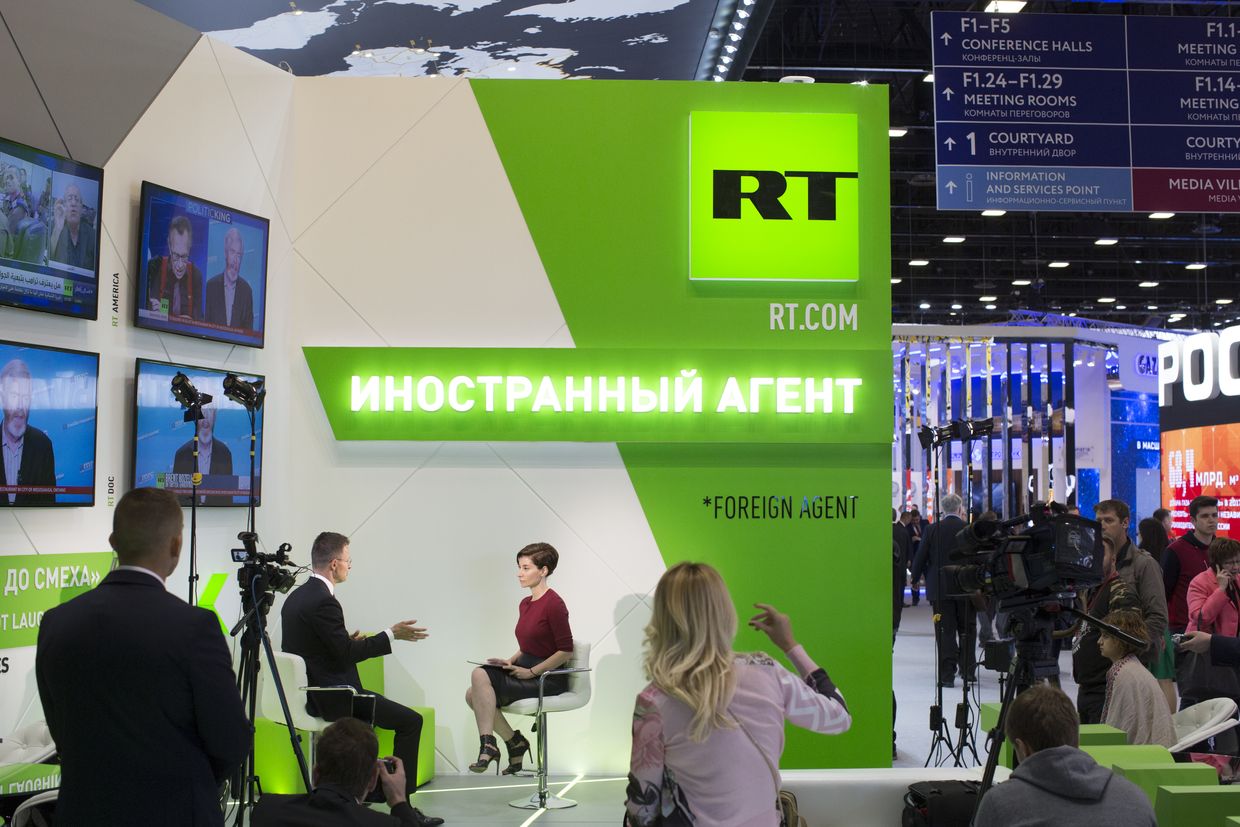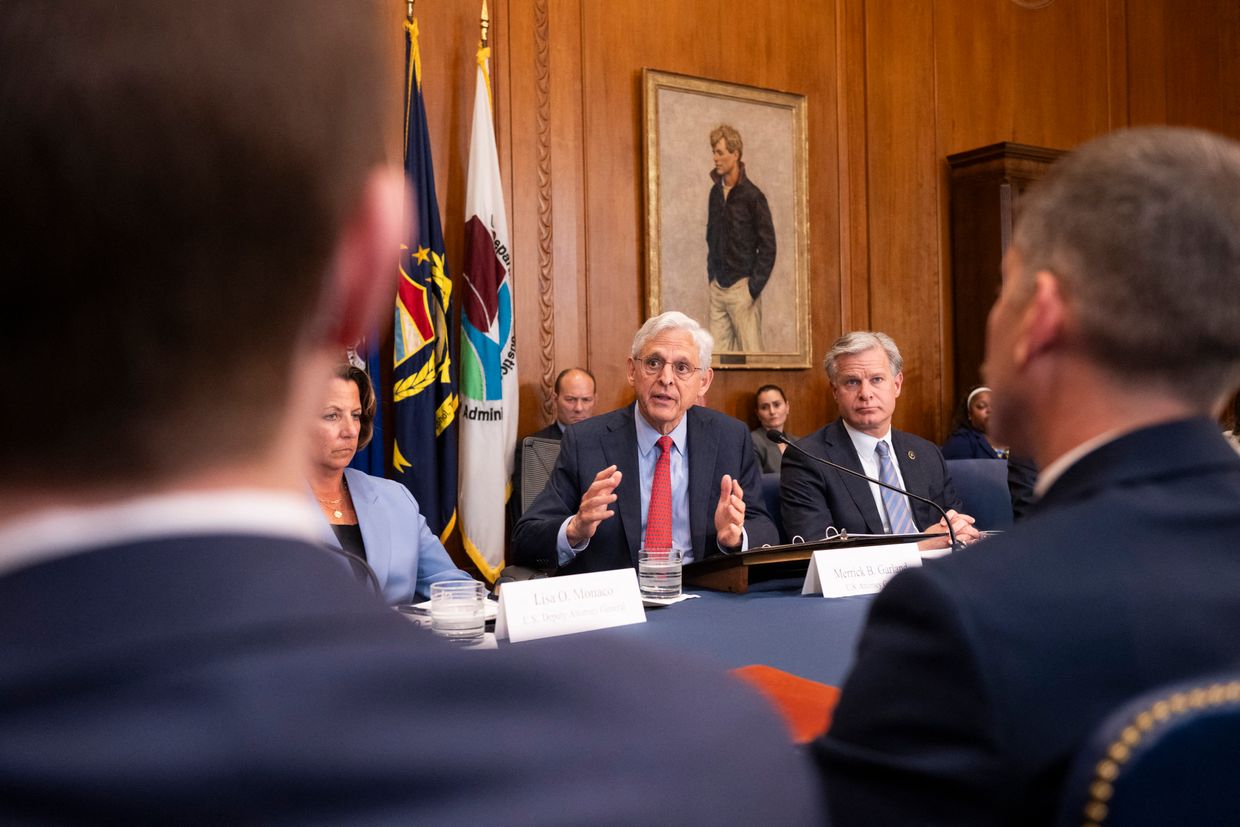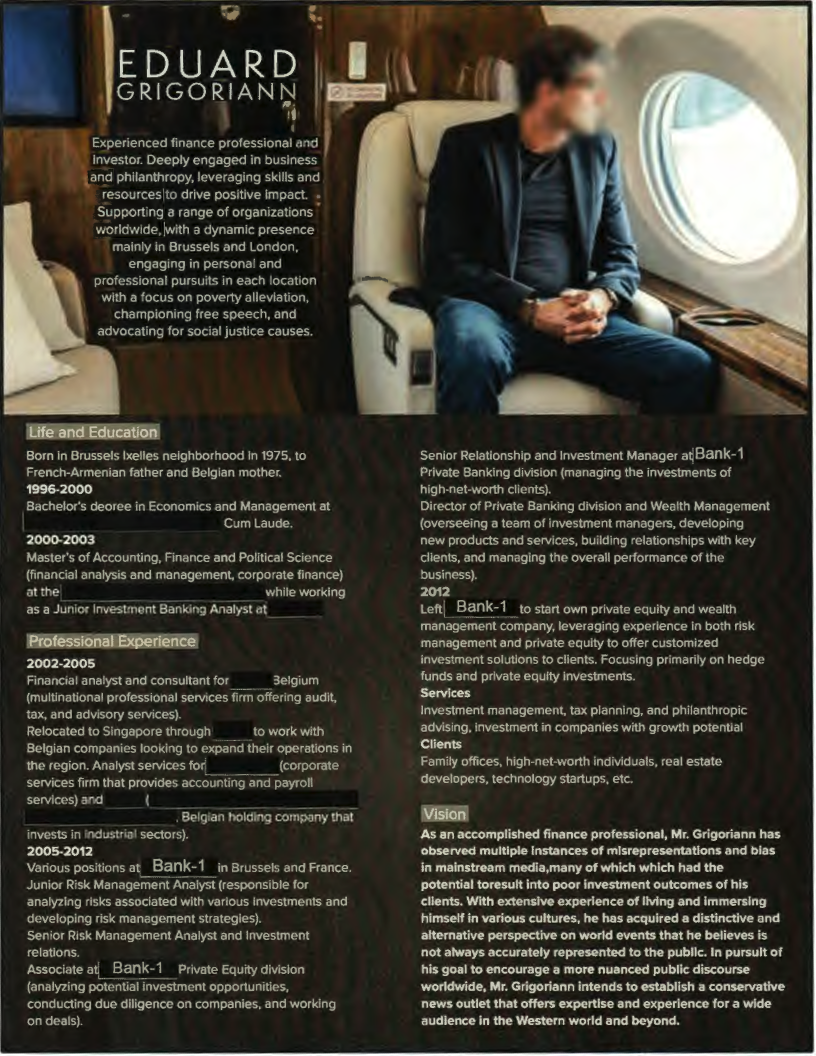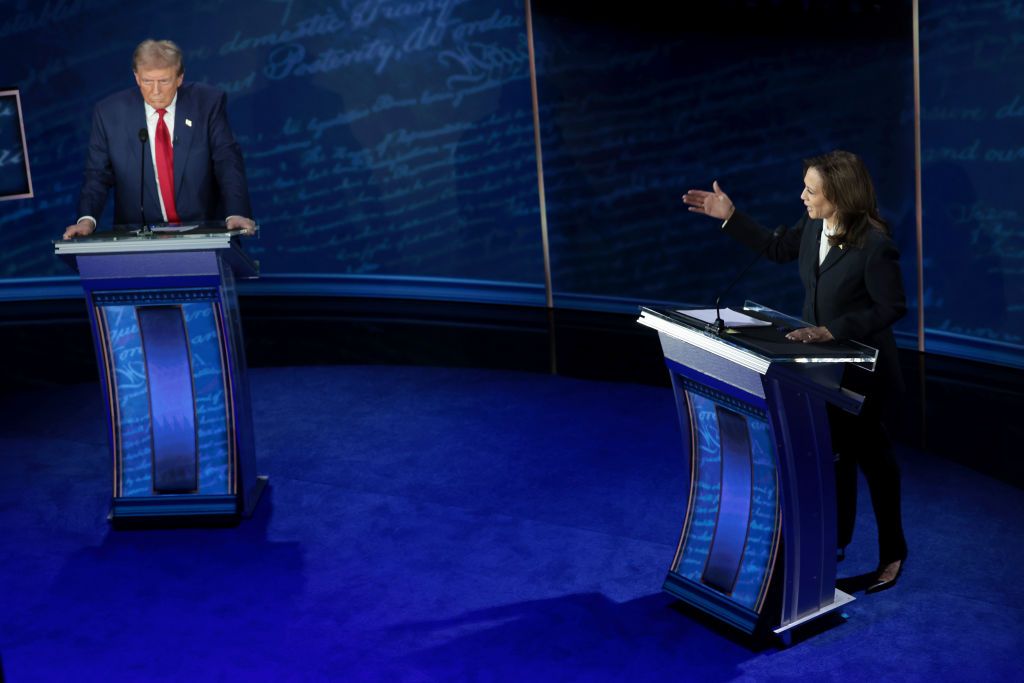U.S. government legal actions targeting a network of Russian influence last week have exposed shortcomings in the country's laws designed to tackle the malign influence of foreign agents, experts told the Kyiv Independent.
Treasury sanctions targeted leaders of Russian state-owned news outlet RT, formerly Russia Today, a media organization widely acknowledged as a Kremlin propaganda machine.
The U.S. Justice Department indicted Kostiantyn Kalashnikov and Elena Afanasyeva, two RT employees, on charges of violating foreign agent and money laundering laws for funding a news network out of a Tennessee LLC called Tenet Media. The outlet funded a roster of “independent” U.S. social media figures known for commentary critical of NATO and Western support for Ukraine.
The Justice Department named six American individuals — Matt Christiansen, Tayler Hansen, Benny Johnson, Tim Pool, Dave Rubin, and Lauren Southern — as being on the payroll of Tenet.

As with many of the sanctions that the U.S. has put out against Russians over the past two and a half years, they don't mean much more than an annoyance for the sanctioned.
As for the criminally indicted RT employees, the U.S.’s conviction rate against foreign nationals in such cases is very high, but their likelihood of seeing a U.S. jail is minimal unless they make the unwise decision to travel to the States.
None of the American media personalities who laundered Russian narratives into U.S. discourse based on funding from Tenet has been charged with any violations. That is at least for now, says Craig Holman who lobbies on government financing reform for the non-profit, Public Citizen.
“These indictments will likely result in convictions against the foreign agents. But they will lead to investigations of any American individuals or groups that appear to be participating in that whole scheme,” Holman told the Kyiv Independent.
The U.S. law behind the indictments
The Foreign Agents Registration Act, or FARA, is at the core of these prosecutions, as well as a wave of other Justice Department actions since 2016.
Like the Lobbying Disclosure Act, or LDA, FARA aims to disclose political influence.
"The Foreign Agents Registration Act provides the public with an opportunity to be informed of the identity of persons engaging in political activities on behalf of foreign governments, foreign political parties, and other foreign principals so that their activities can be evaluated in light of their associations," a U.S. Justice Department report said in 2012.
FARA requires significantly more detailed disclosures than the LDA, including who a registered foreign agent is meeting with, and their actual contract with the foreign party paying them.
A core question is, of course, who constitutes a “foreign agent.” Most political actors would prefer to disclose less rather than more, as a rule. And for the most part, for example, media are exempt — but not if their publications are state-owned.

The Justice Department won a landmark victory against Russian government-owned media back in 2019, getting the right to require a Florida-registered corporation by the name of RM Broadcasting to register as an agent of Rossiya Segodnya — part of the same constellation of Kremlin-funded outlets as Russia Today and, with the most recent developments, Tenet Media.
“The American people have a right to know if a foreign flag waves behind speech broadcast in the United States,” Assistant Attorney General Demers said in a statement at the time.
“Our concern is not the content of the speech but providing transparency about the true identity of the speaker.”
The definitions, however, remain fuzzy.
Intent to distribute
One of the most high-profile FARA cases in recent memory is that of Bob Menendez, who resigned as the Democratic Senator from New Jersey after his July conviction on 24 criminal counts over a longstanding bribery scheme involving the Egyptian government.
Menendez beat similar charges in 2017 by denying that the lavish gifts he received were bribes. The court could not identify a quid pro quo, and the case ended in a mistrial.
The issue of willful violations and intent in the case of the more recent RT indictment may be what has saved figures like Tim Pool and Dave Rubin, despite them being extremely vocal in supporting Russia while on Tenet’s payroll.

“Ukraine is the greatest threat to this nation and to the world,” Pool declared, just weeks before the Justice Department indictment. “We owe Russia an apology.”
For years, the people involved have faced public accusations of being Kremlin mouthpieces, which they have denied. On the day of the indictment, Pool tweeted: “Should these allegations prove true, I as well as the other personalities and commentators were deceived and are victims."
The U.S. citizens involved in the scheme are free to plead ignorance of the origin of their funding. There is no requirement for media to do due diligence into the origin of funding of what Pool has identified as licensing fees.

Part of the problem, says one former Federal Election Commission attorney who currently advises private clients on FARA registrations, is that FARA violations are now almost only prosecuted as criminal felonies, making the threshold to demonstrating guilt a requirement to prove that a crime was committed “willfully.”
“A lot of these violations, or alleged violations, are not really felonies. They're ‘wow, I didn't know I had to register' kind of thing. It would be much easier to enforce that if there was a civil aspect,” said the attorney, who asked not to be named to avoid implicating his clients.
Legislation that Republican Senator Chuck Grassley has introduced in both of the past two Congressional sessions includes a massive uptick in monetary punishments for FARA violations.
Shells all the way down
That legislation also pushes for greater subpoena power within the Justice Department when it comes to potential FARA cases.
As with the case of RM Broadcasting, the link between RT and Tenet depended on corporate opacity — anonymity of ownership and control. It’s a tactic that is still easy to replicate, ensuring a steady supply of shell corporations able to obtain bank accounts.
The RT operatives in the latest scandal even developed a fake investor, "Eduard Grigoriann,” as the ostensible source of Tenet’s money, per the Justice Department’s indictment. There is no reason to think this couldn’t happen again, given that Grigoriann was a simple digital creation.

Identifying the flow of funds in advance remains almost impossible and is dependent on voluntary response to Justice Department requests.
The Grassley legislation aims to greatly increase the Attorney General’s subpoena power, allowing the Justice Department to compel witnesses to produce evidence before a trial. In the case of Tenet, evidence of the interactions between the six U.S. influencers may well come out in the trial of the two Russian RT employees, evidence that a civil subpoena would already have rooted out.
The Grassley bill has, however, stalled in committee and is unlikely to move in the few months that remain of this Congress.
A related loophole is that FARA features an exemption for registered lobbyists, as long as they are not lobbying on behalf of foreign governments. A handy shell corporation can stand in between a foreign government and the lobbyist, and with investigations fraught, violations rarely come to light.

“I'd like to get rid of the LDA exemption,” says Holman. “Most of these foreign agents register under the Lobbying Disclosure Act to avoid the stricter scrutiny of FARA and the stricter disclosure requirements of FARA. Under the Lobby Disclosure Act, they really don't have to spell out very much of what they're doing or who they're representing.”
The exemption does not apply to agents working for foreign governments or political parties. As in the case of RT, or the infamous St. Petersburg troll farm the Internet Research Agency, which is linked to the Kremlin-backed mercenaries of Wagner Group, many of Russia’s government operations are formally privatized despite remaining firmly state-controlled.
As in the case of RM, networks of state control can spin out through corporate entities that increase deniability for government chains of command.
Network
Among the most bedeviling problems involving Russian propaganda today is that proving the role of a paying entity like Tenet’s within a social media-based network is tricky.
“Social media poses a very special problem in that it's very difficult to track who's giving the orders, who and where the money's coming from, and how much money. That's why social media is currently the most popular form of influence peddling for the Russian government, the Chinese, and the Iranians, because it's so difficult to prove,” says Holman.
The challenge posed by social media is completely different to what FARA was originally structured for, though foreign influence campaigns are by no means new.
“Franklin D. Roosevelt was the one who created FARA because he thought Adolf Hitler was trying to influence public opinion to keep America out of WWII. And so FARA then was passed into law. One needs to note that Adolf Hitler never did register under FARA,” Holman said.














